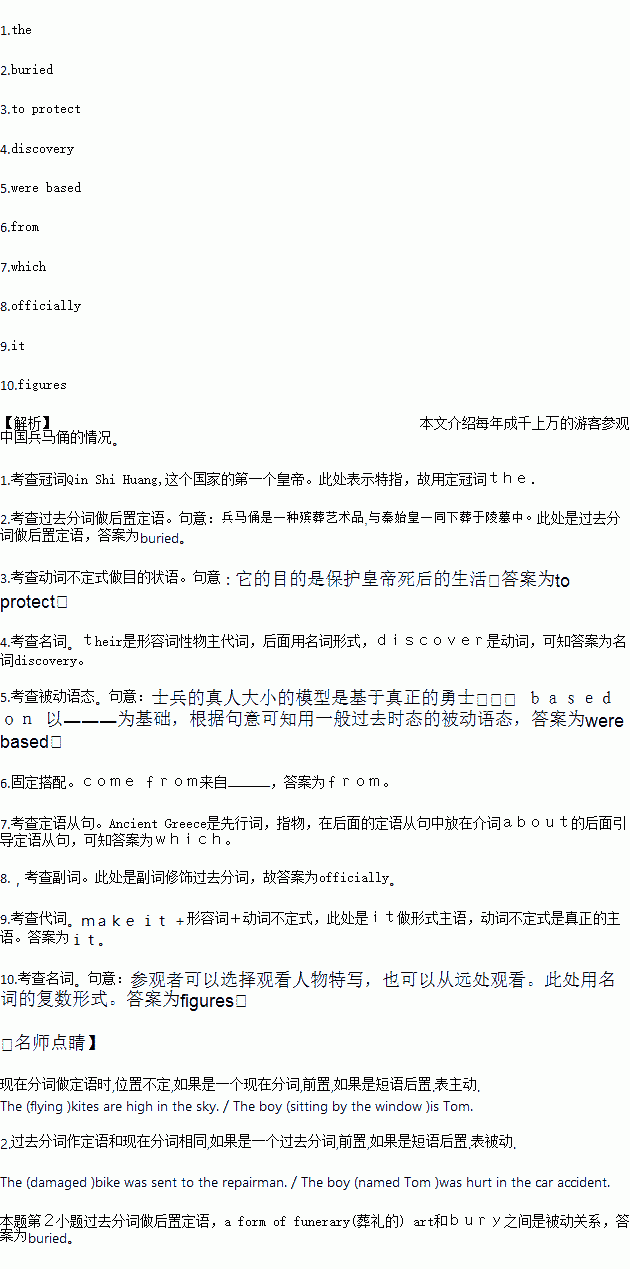题目内容
Each year, thousands of people come to Shaanxi, China, to visit the Terracotta Army, which shows the life of Qin Shi Huang, 1. country’s first Emperor.
As one of the most famous tourist sights in the world, the Terracotta Army is a form of funerary(葬礼的) art 2. (bury) with the First Emperor in 210 to 209 BC. It was designed 3. (protect) the emperor in his afterlife.
Since their 4. (discover), experts have questioned whether the life-size models of soldiers 5. (base) on real warriors (勇士) or whether they came off a production line.
In October a BBC documentary (纪录片), the Greatest Tomb on Earth: Secrets of Ancient China, suggested the inspiration for the Terracotta Warriors may have come 6. Ancient Greece, about 7. Archaeologist Li Xiuzhen said, “We now have evidence that close contact did exist between the First Emperor’s China and the West.”
On the 41st International Museum Day, it was 8. (official) announced that new technology has just made 9. possible for visitors to be guided. Thanks to an interactive (交互式) 360-degree video, visitors can choose either to view the 10. (figure) close-up or from a distance.

